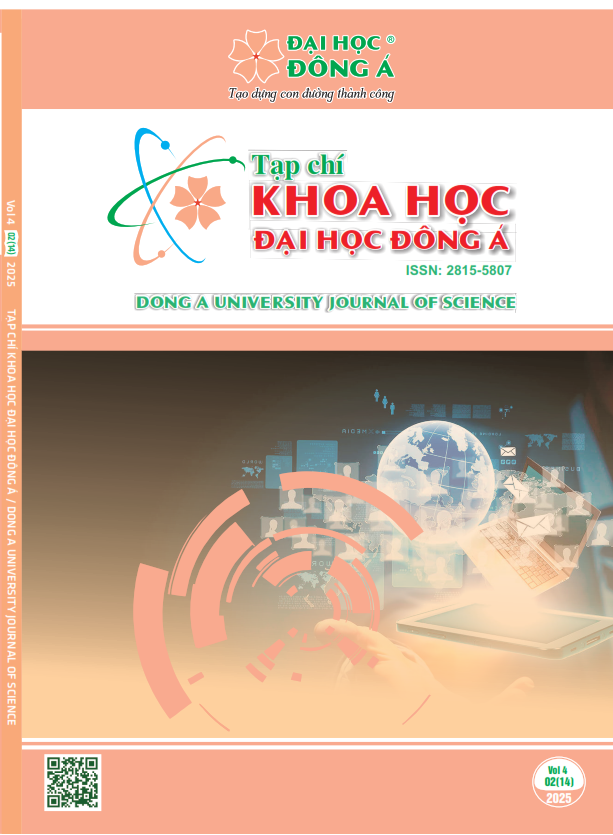Nguyen Du’s Tale of Kieu and Ho Xuan Huong’s Nom Poetry: Appraoched from Perspectives of Intercultural Dialogues
Main Article Content
Abstract
Nguyen Du’s Tale of Kieu and Ho Xuan Huong’s Nom Poetry are famous works in the traditional Vietnamese literary heritage. Therefore, these works have been approached and explored by Vietnamese and foreign scholars from different perspectives. In this paper, from the perspectives of intercultural dialogues proposed by Robert Redfield (1956) and by Vincent J.H. Houben (2021, 2024), the author attempts to bring new approaches and new ways of interpreting to these works. Regarding Tale of Kieu, the author points out that the intercultural dialogues in the work are essentially just horizontal intercultural dialogues of the upper classes in society (the elites) at that time, with absolutely no participation from the ordinary people. Moreover, those intercultural dialogues took place in paradigms and dimensions of Confucianism, Buddhism and of “natural law” theory. When placing those three types of dialogues in a topochrone-style system, three concepts, three core values will reveal: humanity, karma, and destiny. That is the highest magical trinity of the Tale of Kieu. Regarding Ho Xuan Huong’s Nom Poetry, the author argues that the most significant dialogue is the intercultural dialogue between “great traditions” and “little traditions”, reflecting the social conflicts of that time. But it is also an intercultural dialogue between the female and male in the context of a typical patriarchal Confucian society. It is also a dialogue between Vietnamese women to themselves, or with their own status and their own destiny about their aspiration for emancipation.
Article Details

This work is licensed under a Creative Commons Attribution-NonCommercial-NoDerivatives 4.0 International License.
Keywords
Tale of Kieu, Nguyen Du, Ho Xuan Huong’s Nom Poetry, intercultural dialogues, Topochrone
References
Houben, Vincent J.H (2021). Histories of Scale: Java, The Indies and Asia in the Imperial Age, 18201945. Galda Verlag: Glienicke.
Houben, Vincent J.H. “Bài giảng chia tay”, https://ivides.vnu.edu.vn/news/ban-tin/baigiang-chia-tay-gs-ts-vincent-houben-ivides-ussh-ha-noi-2024-nghien-cuu-khu-vuc-trongthoi-dai-toan-cau-hoa-va-phi-toan-cau-hoa-nhin-lai-va-huong-toi-276.html.
Nguyễn Du (2023). Truyện Thúy Kiều. Trần Trọng Kim và Bùi Kỷ hiệu khảo. Hà Nội: Văn học.
Nguyễn Du. “Độc Tiểu Thanh ký”. https://www.thivien.net.
Phạm Hồng Tung (2021). Văn hóa chính trị và lịch sử dưới góc nhìn văn hóa chính trị. Hà Nội: Chính trị Quốc gia Sự thật.
Redfield, Robert R. (1956). Peasant society and culture: An anthropological approach to civilization. Chicago: University of Chicago Press.
Scott, James C. (1985). Weapons of the Weak: Everyday Forms of Peasant Resistance. New Haven: Yale University Press.


